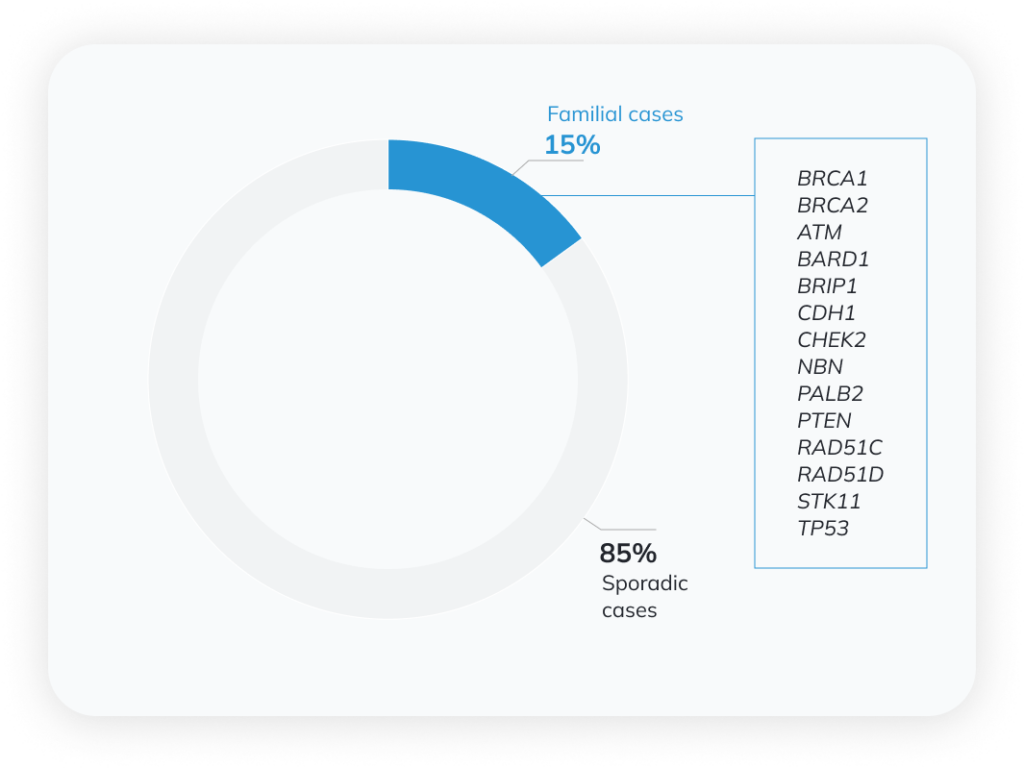Most cancers are sporadic, caused by external environmental factors. However, about 5-10 % of breast and 20% of ovarian cancers are caused by inherited gene mutations. To identify such mutations modern next-generation sequencing diagnostic tests are needed. The BRCA1 and BRCA2 genes are the most commonly studied, as mutations in these genes cause the greatest risk to develop hereditary breast or ovarian cancer.
The identification of inherited BRCA1 and BRCA2 gene mutations encourages people to get tested more regularly and thus detect the disease earlier, when treatment is still effective. A shortcoming of testing for the BRCA1 and BRCA2 genes is that it does not detect mutations in other cancer-risk genes, which are associated with about half of hereditary breast and ovarian cancers.
The European Society of Medical Oncology (ESMO) drew attention to this and included in its recommendations, in addition to the BRCA1 and BRCA2 genes, other risk genes such as TP53 (p53), PTEN, ATM, PALB2, CHECK2, STK11, CDH1.


 Working hours
Working hours 